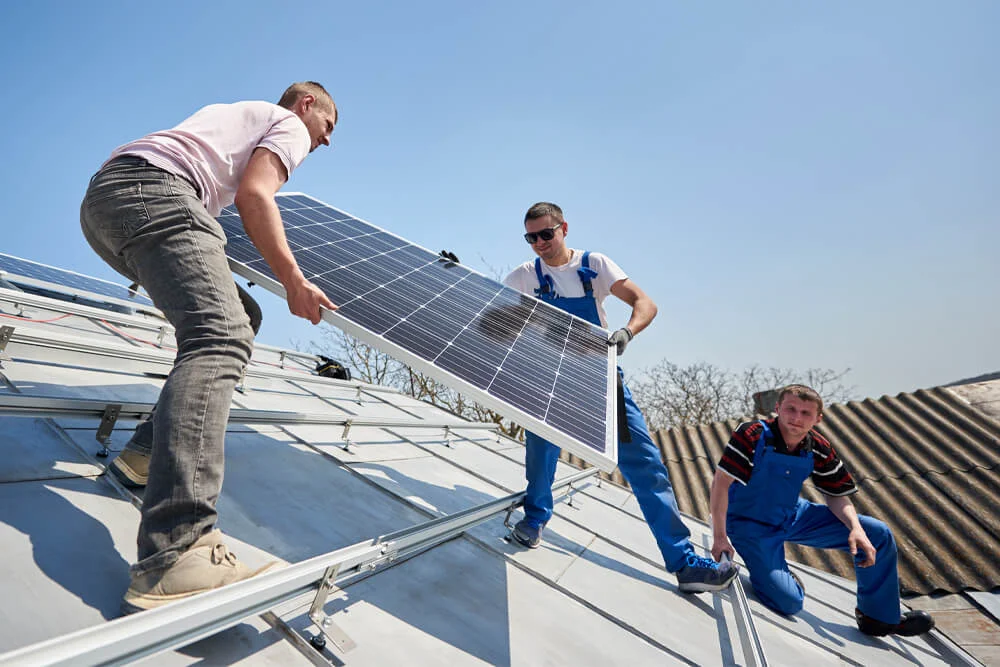Solar panels have revolutionized the way we harness renewable energy, providing an eco-friendly and cost-effective solution for powering our homes and businesses. Solar panels are a long-term investment that can provide numerous benefits, such as reduced energy bills and a more sustainable lifestyle. However, like any other technology, solar panels have a lifespan, and eventually, they may need to be replaced. Identifying the signs that indicate your solar panels require replacement is essential to ensure optimal performance and maximize the benefits of solar energy. Here, we will discuss some key signs that indicate it may be time to replace your solar panels.
-
Deteriorating Performance:
One of the first indicators that your solar panels may need replacement is a noticeable decrease in performance. Over time, solar panels may become less efficient due to wear and tear, accumulated dirt, or aging components. If you notice a significant drop in your system's energy production despite consistent weather conditions, it could be a sign that your solar panels are no longer functioning optimally. Monitoring your system's energy output regularly can help you identify any performance issues.
-
Physical Damage:
Solar panels are designed to withstand various weather conditions, but they are not immune to physical damage. Extreme weather events like hailstorms or falling tree branches can cause cracks, chips, or even shattered glass on the surface of the panels. Physical damage compromises the integrity of the solar panel and can lead to reduced efficiency or complete malfunction. Regular visual inspections of your solar panels can help identify any visible signs of damage.
-
Aging Panels:
Solar panels have an average lifespan of 25 to 30 years, depending on their quality and maintenance. If your panels are approaching or have exceeded this timeframe, it is wise to consider replacing them. Aging panels are more prone to performance issues, reduced efficiency, and increased maintenance requirements. Upgrading to newer models with improved technology and efficiency can provide better energy production and save you money in the long run.
-
Inverter Problems:
Inverters are an integral part of any solar panel system, responsible for converting the direct current (DC) generated by the panels into usable alternating current (AC) for your electrical needs. If you experience consistent issues with your inverter, such as frequent breakdowns or continuous error messages, it may indicate that your inverter has reached the end of its lifespan. In some cases, replacing the inverter alone may solve the problem, but if the issues persist, it might be an indication that the entire solar panel system requires replacement.
-
Warranty Expiration:
Solar panels often come with warranties ranging from 20 to 25 years, covering manufacturing defects and ensuring performance guarantees. If your solar panels are nearing the end of their warranty period, it is worth considering replacement. As panels age, they become more susceptible to faults and decreased efficiency. Replacing them before the warranty expires can save you from potentially costly repairs or replacements in the future.
-
Outdated Technology:
Solar panel technology is constantly evolving, with new advancements being made regularly. If your current panels utilize outdated technology or are no longer compatible with the latest system upgrades, it may be beneficial to replace them. Upgrading to more efficient and technologically advanced panels can enhance energy production, improve system integration, and maximize your overall solar investment.
-
Rising Maintenance Costs:
As solar panels age, the cost of maintaining and repairing them can increase significantly. Frequent repairs, along with the associated labour costs, can quickly add up over time. If you find yourself spending a substantial amount on repairs or maintenance, it may be more cost-effective to replace the panels altogether. Investing in new panels can provide a fresh start with minimal maintenance requirements and lower long-term expenses.
Conclusion:
Solar panels are a reliable and durable source of clean energy, but like any technology, they have a limited lifespan. Recognizing the signs that indicate the need for replacement is crucial for maintaining the optimal performance and maximizing the benefits of your solar panel system. Keep an eye on decreased performance, physical damage, aging panels, inverter problems, and warranty expiration. Regular inspections, maintenance, and consultations with solar professionals can help you determine when it's time to invest in new solar panels, ensuring that you continue to enjoy the advantages of renewable energy for years to come.





